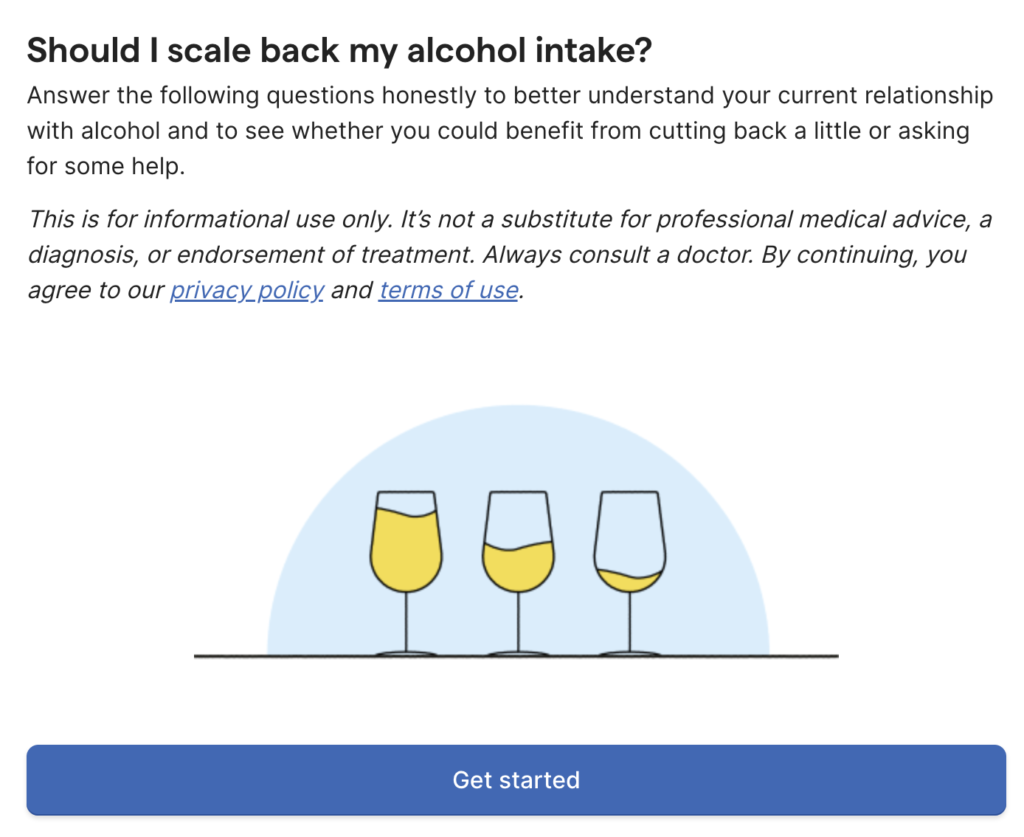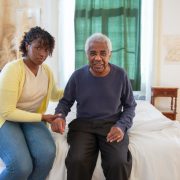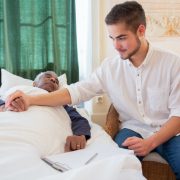The opioid epidemic has become even more devastating due to the increased presence of fentanyl in illicit painkillers, cocaine, and heroin. Fentanyl is a synthetic prescription-only opioid painkiller that’s 50 to 100 times more powerful than morphine. Because of its extreme potency, fentanyl can easily cause a fatal overdose.
Fentanyl abuse has been on the rise over the last several years and with it has come a wave of overdoses and deaths by overdose. The difference between a safe dose of fentanyl and a fatal overdose is very small and it takes surprisingly little fentanyl to kill. Depending on a person’s tolerance, as little as 2 milligrams of fentanyl can cause a fatal overdose, compared to the 30 milligrams to 100 milligrams needed for heroin. A fentanyl overdose is fast and can start within seconds.
Most deaths from fentanyl overdose have been caused by people taking other drugs, like heroin or cocaine that have been contaminated with fentanyl.
What Does Fentanyl Do?
Fentanyl is an analgesic that relieves severe, long-lasting pain. It’s also used to control breakthrough pain that accompanies cancer but can also be used to control chronic high-level debilitating pain that comes from other causes.
Like all opioids, fentanyl works within the brain. Molecules of fentanyl attach themselves to specialized receptor sites on brain cells that control the perception of pain. When fentanyl binds to these tiny receptor sites, a person’s sense of pain is temporarily decreased or shut off entirely. Fentanyl also causes the release of the neurochemical dopamine, the primary chemical used in the brain’s learning and reward center. Increased levels of dopamine not only reduce pain but also produce an intense feeling of well-being, even euphoria.
Fentanyl is much more efficient and far more powerful than other opioids in two ways: it penetrates brain tissue more effectively and binds more strongly to the cells responsible for our ability to feel pain. This means it takes smaller doses of fentanyl to control pain than other opioids. It also takes effect more rapidly.
The same qualities that make fentanyl an effective painkiller can also make it dangerous when it’s not taken in a controlled medical setting. Fentanyl affects areas of the brain that control heart rate, breathing, and consciousness. Just as fentanyl slows or halts the working of the brain cells that allow us to perceive pain, fentanyl can also slow the brain tissue that keeps us breathing and our hearts beating.
There are numerous ways fentanyl can be delivered into a person’s system. They include:
- Skin patches (Duragesic®, APO-fentanyl®)
- Lollipops and lozenges (Actiq®)
- Tablets
- Injections (Sublimaze®)
Fentanyl purchased on the street or as a contaminant in other street drugs like cocaine is usually a powder. A minute amount of fentanyl is sufficient to kill a healthy adult, especially if that person has little tolerance to opioids.
In recent years, many kinds of illicit drugs have been found to be contaminated with fentanyl, including cocaine, benzodiazepines, and amphetamines purchased on the street.
What are the Side Effects of Fentanyl?
Fentanyl’s main effect is pain relief. However, in those who aren’t suffering intense pain, fentanyl produces a powerful sense of euphoria and well-being.
Typical Side Effects of Fentanyl
• Constipation
• Nausea, stomachache
• Drowsiness, sleepiness
• Problems sleeping, including insomnia
• Headache, dizziness
• Feeling cold
• Excessive sweating
Signs of Fentanyl Overdose
Like all opioids, fentanyl has a high potential for abuse and addiction. Fentanyl is also easy to overdose on, with many overdoses leading to death. Death from a fentanyl overdose typically occurs because a person’s respiration becomes increasingly shallow, then stops altogether.
The following are the symptoms of a fentanyl overdose:
• Small or pinpoint pupils
• Shallow, slow, or erratic breathing
• Awake but unresponsive
• Unconsciousness
• Limp body, poor muscle tone
• Slow or erratic heartbeat
• Choking, gasping, or rattling sounds when breathing
• Vomiting
• Gray, ashy or bluish skin
• Clammy skin
An overdose of fentanyl causes a condition called hypoxia. In hypoxia, the body’s tissues become starved of oxygen and stop working properly, then fail. However, the brain can only survive without oxygen for a couple of minutes before permanent damage is done.
How Fentanyl Addiction Happens
With continued use of fentanyl, over time it takes ever-increasing higher doses to get the same effect that a lower dose once delivered. As with all opioids, fentanyl abuse leads to the sophisticated pleasure, learning, and reward pathways of the brain being “re-wired,” so that only the presence of fentanyl can trigger the release of dopamine.
Even more concerning is that with consistent abuse of fentanyl, the brain’s ability to make dopamine decreases, leading to an overall lowered ability to tolerate pain throughout the body. In turn, people end up taking more and more fentanyl to suppress pain.
This vicious cycle can be broken through a process called recovery. Recovery from addiction is much more than simply abstaining from fentanyl. It entails a person being able to live a satisfying life without chemical abuse.
How Can You Safely Stop Taking Fentanyl?
Recovery from addiction requires a process called detoxification. Detoxification is the process in which all of the drug or drugs in question and their byproducts completely leave a person’s body. It is the first step toward recovery from addiction.
If you’ve been taking fentanyl as prescribed by a medical professional for a couple of weeks or less, you can safely stop taking it once your prescription runs out. However, there are other safe ways to stop taking fentanyl for those who’ve been taking it over a longer period.
One safe approach to quitting fentanyl is called a drug taper. Tapering is a lengthy process in which a person who’s been taking fentanyl over a long period slowly and incrementally decreases their levels of fentanyl intake. The end goal is to eliminate all fentanyl use. A taper needs to occur with the help of medical professionals trained in addiction detoxification.
Reducing one’s intake of fentanyl requires daily medical support to calculate and administer the correct decreasing dosage schedule, as well as to assure that quitting fentanyl occurs with as little
discomfort as possible. Tapering is a reliable and safe method to detoxify from fentanyl only if overseen by a medical professional.
Medically Assisted Detox from Fentanyl
Another approach that’s a safe method for quitting fentanyl is a medically assisted opioid detox. A medically supported detoxification takes less time than a taper and can be carried out at home.
In a medically assisted detox, a person is supported with medication provided by a medical professional that reduces the symptoms of withdrawal. Other medications can alleviate the intense cravings for fentanyl that are part of detoxification. These medicines include methadone, Suboxone, or buprenorphine, which can be given on a time-limited basis.
Going “cold turkey,” or suddenly stopping one’s use of fentanyl without medication for withdrawal causes painful, acute fentanyl withdrawal symptoms and should never be attempted. After using fentanyl—or any opioid for a long time, the body becomes dependent on it for its regular functions, particularly the production of the neurochemicals that the brain uses to govern every aspect of our thoughts, feelings, and perceptions.
Going cold turkey also impairs sustaining functions, like how our bodies keep our heart rate, respiration, and blood pressure steady and healthy. This happens because fentanyl becomes the chemical “cue” that vital neurological and systemic processes rely on to work correctly.
No one should attempt to stop taking fentanyl without help from a medical professional.
Fentanyl Withdrawal Symptoms
When a person is dependent on fentanyl, being unable to get it leads to withdrawal. Acute withdrawal from opioids is painful and can be dangerous.
These are the most typical physical symptoms of fentanyl withdrawal:
• Stomach cramps
• Diarrhea
• Muscle aches and pains, often severe
• Involuntary leg movements
• Tremors
• Sweating
• Chills
• Problems breathing
• Hypertension (blood pressure may become dangerously high)
• Rapid heartbeat
• Excess sweating
• Watery eyes, runny nose
• Yawning
A person’s psychological state also suffers during withdrawal from fentanyl. These symptoms include:
• Anxiety, panic attacks
• Cravings for fentanyl, which may be intense or overpowering
• Mood swings
• Depression
• Problems concentrating
Note that addiction to fentanyl, like all addictions, is progressive—that is, a person will require more and more of the drug to attempt to get the same effect, but sooner or later, will be unable to do so. Eventually, no amount of fentanyl will stave off withdrawal. This leads inevitably to a downward spiral in day-to-day functioning and increasingly impaired health.
How Long Does Fentanyl Stay in Your System?
Fentanyl’s acute withdrawal symptoms begin 6 to 12 hours after a person’s last dose and usually peak anywhere from 1 to 3 days. The most intense withdrawal symptoms decrease over one week to ten days. However, withdrawal from a longer-acting form of fentanyl, such as that delivered through skin patches, can take up to 36 hours to start.
Fentanyl can be detected on a urine drug test for up to 72 hours after the last use. Blood tests will pick up fentanyl for as long as 48 hours after the final use, and fentanyl can be found in hair follicles for up to three months.
Getting Help
Fentanyl abuse and addiction are common conditions in the U.S., but they’re highly treatable disorders. You also don’t have to go into a hospital or clinic to detox. Kinkaid Private Care delivers top-notch care through the services of a private detox nurse, a trained medical professional under the supervision of a physician. The detox nurse is fully trained to provide medical assistance for fentanyl withdrawal symptoms, from mild to more severe. Your private detox nurse will help ease you through the detox and withdrawal process, allowing you to stay in the safe and private environment of your own home.
Kinkaid Private Care offers premium in-home services to patients looking for the best and most intensive care on the market. We only take on a few clients at a time, so we always provide specialized care to meet the needs of each client. Additionally, not only do we specialize in premium care, but we also practice proper management techniques to ensure your care is organized, efficient, and best for you.
Overall, we create a concierge medical experience for each of our clients. Our approach starts with building relationships with each of our clients and their families; we get to know you in the comfort and privacy of your home to understand your exact needs. We then create a personal care team for you consisting of at least a clinical nurse specialist, clinical case manager, and care coordinator. Our compassionate teams are clinician-led and available to you 24/7 to provide unparalleled service and attention to detail.




 Insomnia and Alcohol Withdrawal Symptoms
Insomnia and Alcohol Withdrawal Symptoms









